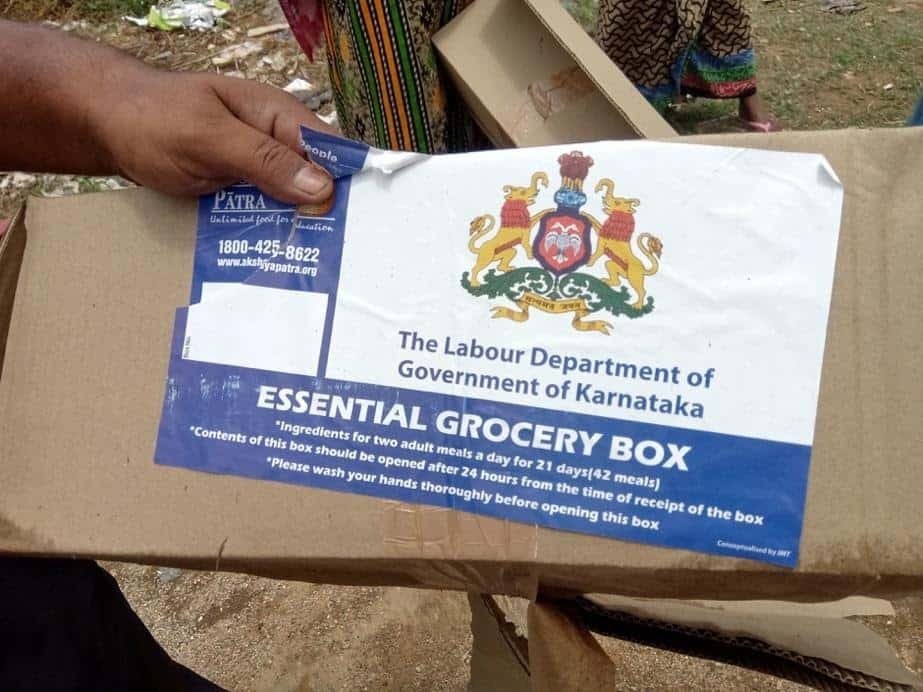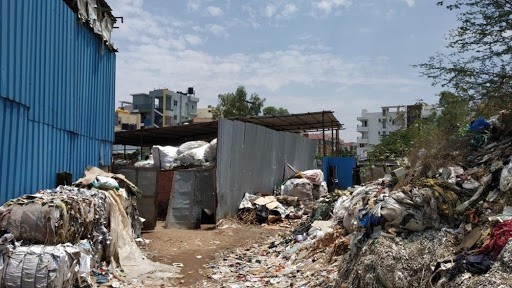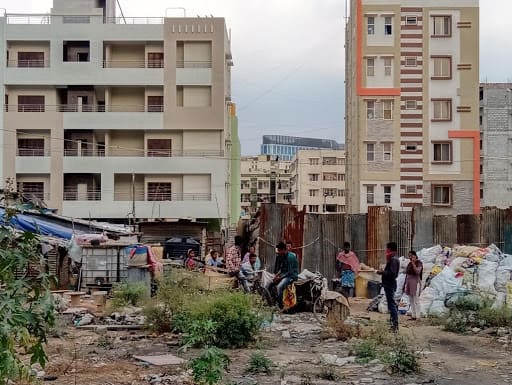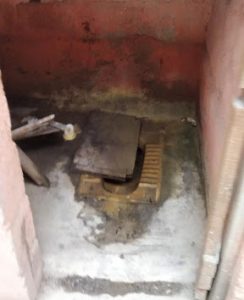Since April 1, Maraa, a media and arts collective based in Bengaluru, has been trying to ensure relief for migrant workers stranded in the city during COVID-19 lockdown. Our efforts have included conducting independent surveys and audits, fundraising, ration distribution and putting pressure on the BBMP to ensure accountability. During this period, several problems have risen that we feel need to be brought to public attention, primarily the government’s lack of response and accountability towards migrant workers. We have used our work in Chinappa layout in Mahadevpura, and Doddagubbi, as case studies to highlight these issues.
We received SOS calls from workers in both areas. As a response, we conducted independent surveys and audits in both areas, collecting details of the workers and their immediate needs. There are close to 700 workers in Chinappa layout, Mahadevpura, from West Bengal, UP, Bihar and Nepal. They work as construction workers, carpenters, waste pickers and domestic help. There are close to 300 workers in Doddagubbi, primarily construction workers from UP, Jharkhand, Bihar and West Bengal. Both areas are situated amidst gated colonies and industrial complexes, in prominent locations in the city.
We submitted the data to the revenue inspector and ward officers in both areas. After numerous calls, we accompanied the revenue inspector Ravi Kumar in Mahadevpura, and the ward officer Sheikh in Doddagubbi on a survey.
We found that BBMP was distributing one cooked meal a day, in some areas within both localities. The supply was erratic. In Mahadevpura, BBMP distributed one round of ration, a box that was meant to last 21 days. Inside the box was 2 kgs of rice and rotten potatoes. The revenue inspector informed us that the food had gone stale in the godown because of the delay in distribution. In Doddagubbi, the government has not provided ration at all. Instead, the ward officer asked us to arrange for transport and to distribute ration.
Workers have been asked to share contact numbers and Aadhar card numbers. In spite of the repeated lists that were submitted, no ration has been distributed in either area. In the meantime, as a stopgap measure, we had to distribute ration in both areas, with the help of civil society organisations in the city.

Pic Credit: Maraa
Two weeks have passed. What is the government doing with the data they have collected? The officials took photos of the workers and themselves conducting surveys. Is this a PR exercise? As workers wait in hunger, our calls are being routed from one officer to another, each of whom are abdicating responsibility. How long does it take for a system to become responsive to the needs of workers? Or is there a lack of political will to protect migrant workers who render essential services to the city?
“Since the lockdown began, everyone has forgotten about us.
We are told to “adjust”
Can anyone survive on one small packet of food a day?
Would the government like us to starve to death?

Workers live inside even waste recycling godowns in Chinappa layout, Mahadevpura. Pic: Maraa
Second, workers in both areas work under contractors. Since the lockdown began, the contractors have switched off their phones and told workers to fend for themselves. Those who have been responsive, have transferred meagre sums between Rs 4,000-8,000 for the entire period of the lockdown. Others have made promises for the future.
“The contractor is not sending us money because he wants to take care of us.
Every rupees he spends on us, he will deduct from our salary.
There is no information about wages for April.
How will we survive in the city?
What money will we send back home?”
Even though the Ministry of Home Affairs has declared that certain industries can resume work, there will be a substantial period of time before workers are back at work and are paid their wages. During this period, hunger is an immediate problem.
Hence the following requires urgent action and redressal:
- Distribution of ration that can last a minimum of three weeks for workers and their families, until their work resumes.
- Payment of wages by contractors/employers who are responsible for the welfare of workers. It needs to be ensured that money given toward ration is not cut from salaries of workers, as this goes against government orders.
- Surveys and audits across Bengaluru to accurately assess the number of migrant workers and their immediate needs. This needs to be done in a manner that ensures data privacy and protection of workers, given the recent cases of violence that have erupted in the course of relief work.
- Most workers lack access to masks, sanitisers and running water, which makes the health precautions under COVID-19 impossible for them to practice.

A large population in Mahadevpura comprise of waste pickers and recyclers dependent on daily wages. Pic: Maraa

State of bathrooms inside labour colonies in Mahadevpura. Pic: Maraa
We believe this situation reveals the lack of government accountability and preparedness to address the needs of migrant workers in the city. It also reveals labour violations across sectors with regard to wage, safety and security of workers.
Above all, we need to realise it is not easy for a worker to call a stranger and ask for food. Hunger is not easy to express to strangers. Workers value their dignity. Many have also shared that they feel humiliated to ask people for favours. They are put in a situation where they are forced to relive humiliation every day. The government needs to take the responsibility to reassure workers in different languages and also to cater to their needs so that they are not in this position. Their patience is wearing thin.
Also read:
- Here’s how you can help your community during the lockdown in under 5 minutes
- COVID-19 lockdown: Informal workers most affected, survey recommends Rs 21,000 cr relief
- No salary, no free ration: Namma Metro workers struggle during lockdown
- COVID-19 lockdown: Migrant workers counted again and again, but where is the relief?
- Solving hunger crisis during lockdown: A guide to documenting migrant workers in need
[This article is based on a press release from Maraa, and has been published with minimal edits.]